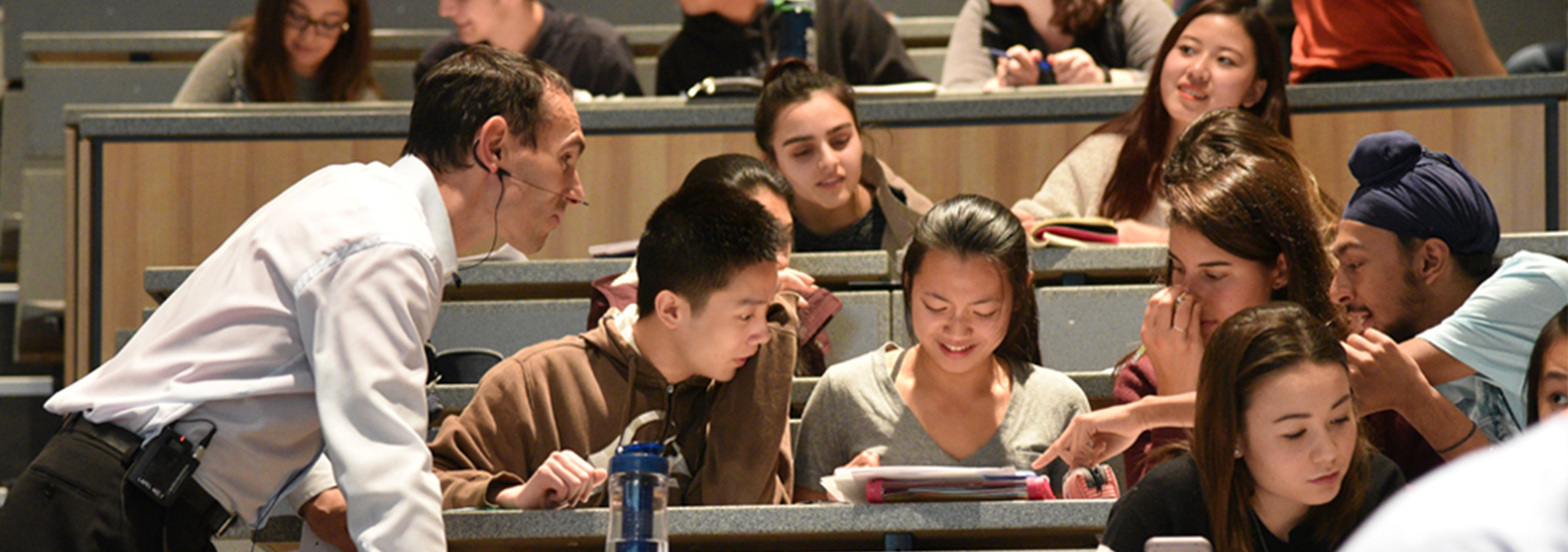
The Physics and Astronomy Education Research (PHASER) group brings together people from diverse backgrounds who share an interest in improving teaching. We are an open and inclusive group that provides a space for research and professional development from those in instructional roles (undergraduate students, graduate students and faculty), to those who want to learn how to improve their own teaching, and from people wanting to build relationships in the field of education, to education specialists and leaders who want to contribute to the field of education as a whole. We focus on Physics Education Research (PER) and Astronomy Education Research (AER) within the broader field of Discipline-Based Education Research (DBER), as well as the Scholarship of Teaching and Learning (SoTL).
DBER is an interdisciplinary field that combines deep content expertise, social science research methods and principles from education, and cognitive science to study the discipline-specific issues experienced by learners. This spans topics such as the difficulties sciences students face regarding data analysis and interpretation or what it means to think like a scientist to how do we actually assess student learning.
With PER and AER we think even deeper about the disciplinary issues that face people learning physics and astronomy. They could be specific, such as how does one understand the difference between the electric field and electric potential, or how to intuitively introduce the method of parallax, to broader topics such as how do teach iterative thinking or change student attitudes towards approaching and solving problems.
A parallel, but often overlapping, field to DBER is SoTL. The goal of SoTL is very similar to DBER in that we study how people learn. However, SoTL captures the practice of evaluating and improving one's own teaching. It’s more personal and more reflective. While DBER often focuses on well-established qualitative and quantitative analysis methods, SoTL focuses more on stories and experiences as a way of knowing and is often highly personal and context specific. Combined with DBER, SoTL is a formalization of the process by which courses, curriculum, and teaching methods are evaluated and improved, and these improvements are disseminated to the community.
A goal of the PHASER group is to situate the UBC Department of Physics and Astronomy as a leader in teaching and learning. We help define the teaching and learning goals of the department and work to meet these goals. We work to evaluate and revise courses, keep the department informed about recent developments and innovations in education, and engage ourselves and our departmental colleagues in professional development related to teaching.
A core area of UBC’s Strategic Plan is Transformative Learning, which is both the idea that education can be a transformative experience for people, but also that the way we teach must change as society changes. Our goals align with UBC’s goal of Transformative Learning by (1) using evidence-based practices to evaluate and improve teaching in the Department of Physics and Astronomy and UBC, providing students with richer, more meaningful experiences and (2) publishing and disseminating these changes, innovations, and practices to become leaders in the larger fields of DBER and SoTL.
The PHASER group is built on 3 pillars:
1. Community: We are a Community of Practice that connects people in the department who are working on or interested in learning about DBER and SoTL. In doing so we build a distributed knowledge within the department and across the university. We regularly hold research round tables or give people an opportunity to talk about what they’re doing in the course.
2. Individual Knowledge: We provide a space for people to build their individual knowledge of teaching and learning. Our group meetings often consist of reading groups or opportunities for people to get positive critical feedback on their course development and research. This is a place for new ideas to form and old ideas to be refined.
3. Research Excellence: We contribute to the larger research fields related to Teaching and Learning through our research and talks. We regularly hold meetings to give people an opportunity to practice research talks, refine posters, prepare for PhD committee meetings, as well as providing feedback on papers for publishing.
Who are we? The PHASER group in an ever-widening circle of people with backgrounds from physics, astronomy, education, data science, and psychology. We are Teaching- and Research-Stream Professors, Lecturers, Undergraduate and Graduate Students, Postdocs, Science Teaching and Learning Fellows (STLFs) and Science Education Specialists (SESs).
How to get involved. We welcome interested students, staff and faculty.
- Join us for our weekly meetings (calendar).
- Join the PHASER mailing list.
